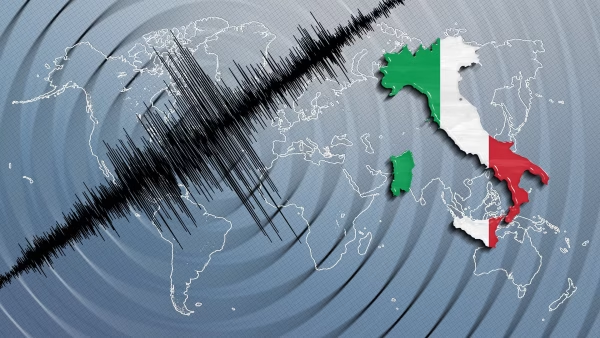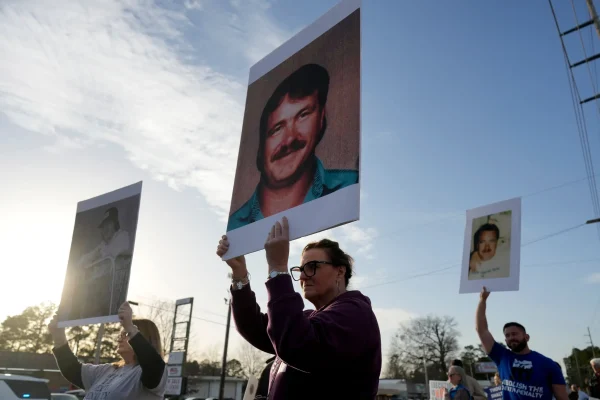Outbreak of measles disease across America may have been caused by the rise in anti-vaxxers
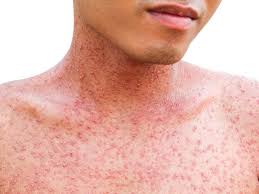
Recently, across America, there has been a measles outbreak with over 760 reported cases in 23 states. The outbreak may have been caused by the recent increase in anti-vaxxers.
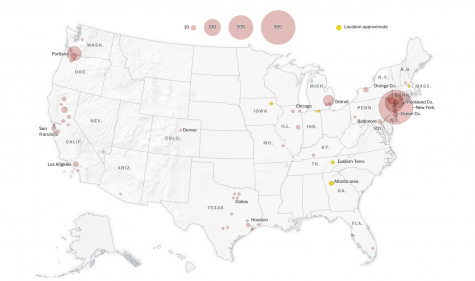
On January 1, the first measles case of 2019 was reported. As of May 3, 763 more cases had been reported, which was an increase of 60 since the previous week. The majority of the cases are in Washington, New York, New Jersey, and California, but 19 other states have also had cases.
Measles is an extremely contagious virus that usually caught during early childhood. It is spread by coughing and sneezing, and the virus can live for up to two hours in the area where the infected person coughed or sneezed. Earlier symptoms include a high fever, a running nose, and watery eyes. Within a few days, a red rash forms on the skin. A few days later, the rash disappears and the fever goes down.
The measles vaccination is a two-part process that takes place very early. The first dose is given at about 12 months and decreases the risk of contracting measles by 93%. The second dose is given at about four years of age and decreases the risk by 97%.
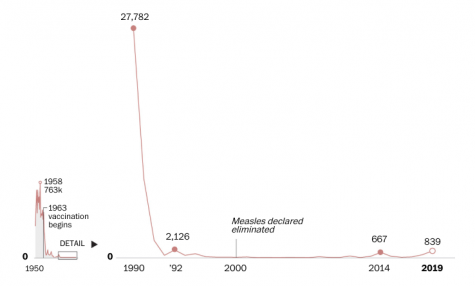
In 2000, measles was declared eliminated but returned in 2013. Now, in 2019, there has been the greatest amount of cases since 1994. This may have been caused by the recent rise of anti-vaccination movements.
About 71% of those who contracted measles in 2019 where unvaccinated. 11% were previously vaccinated, and 18% are unknown.
Kelly Orringer, M.D., director of general pediatrics at University of Michigan C.S. Mott Children’s Hospital, says, “Most of the people that have been diagnosed (in Washington) are unvaccinated children.” She goes on to say, “In our practices we almost never see children who are unvaccinated because their parents can’t afford the vaccine. More than 99 percent of the time in these cases, they’re refusing the vaccine.”
About 475 of the 763 cases across the U.S. took place in Orthodox Jewish communities in New York and New Jersey. In those communities, there’s a small amount of people who are skeptical of vaccines, and don’t vaccinate their children. This leaves room for measles to spread.
Mainly, measles spreads by people traveling to other countries. Those people become infected, and when they return to the states, spread the virus to others. From there, it spreads rapidly. Those who are unvaccinated are also making it much easier for the virus to spread.


